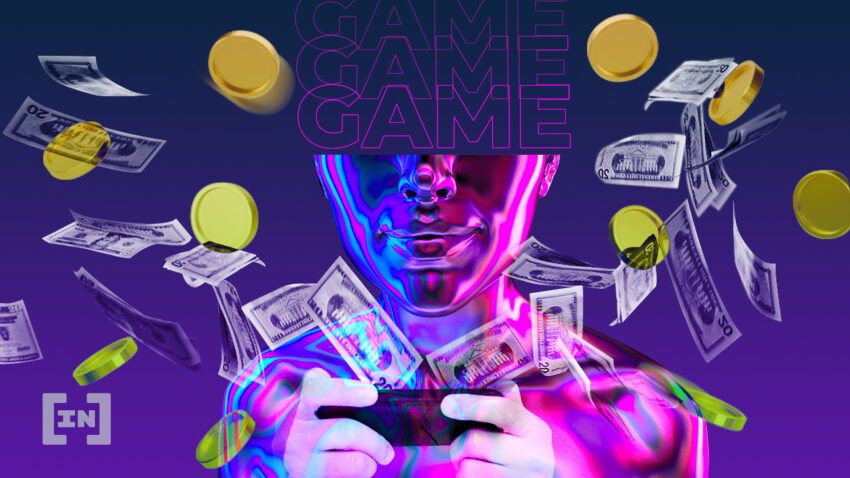[ad_1]
Despite the familiar sounds of controllers and the captivating glow of screens, a gaming revolution is happening. The blockchain, once only for crypto fans, is now changing how we play, compete, and earn in virtual worlds.
Estimated to reach an overall size of $455.30 billion in 2024, the gaming industry is undergoing a monumental shift. The effect of blockchain technology is reshaping play and creating immersive universes where every action holds real-world consequences and your skills translate to tangible rewards.
Blockchain games are liberating themselves from the limitations of centralized servers and publishers, offering players ownership and transparent economies. Yet, amidst the excitement of play-to-earn models and decentralized governance, a crucial question emerges: Can we unleash the full potential of blockchain gaming without ensuring the security of our digital privacy?
This article explores the realm of blockchain gaming and its transformative impact on play. It underscores privacy’s pivotal role in realizing its true potential for an unparalleled blockchain experience. Finding the right balance between transparency and anonymity has become essential in a world where every transaction is recorded on a public ledger.
How blockchain redefines digital property rights
Many of us grew up in an era when games were closed systems ruled by iron-fisted publishers. We had no real power or say in matters related to the gameplay and our imaginations were confined to the walls they built, with no freedom to paint our own narratives. In contrast, blockchain games offer a new model of ownership and agency where players can write the rules and build a community-powered future.
Yes, blockchain technology has revolutionized ownership, turning virtual assets into valuable NFTs with real-world value. Imagine slaying a dragon in a game and claiming its scales as an NFT – the more skilled you become, the more valuable your NFT. This essence of “play-to-earn” blurs the line between entertainment and financial opportunity.

Decentralized networks are shifting power to gaming communities, replacing centralized control with player-driven economies. In this model, in-game rules are shaped through collective decisions, fostering vibrant virtual societies where your voice matters. The future of gaming isn’t just about playing; it’s about building, owning, and thriving in collaborative worlds powered by the transformative blockchain.
Token triumph: Navigating the impact of blockchain
Blockchain is reshaping yet another gaming realm: eSports. The global eSports market is projected to grow from $1.72 billion in 2023 to $6.75 billion by 2030. That’s a CAGR of 21.5% during the forecast period. Platforms like Citizen Conflict and many others are trying to democratize this competitive landscape. This could level the playing field by rewarding skill and dedication through transparent in-game economies and accessible NFT assets. This inclusivity allows anyone, regardless of background, to compete and earn real-world rewards. Meanwhile, titles like Rarity Rush adds a blend of fantasy sports and blockchain, enabling ownership, management, and trading of NFT-based player cards tied to real-world performance.
While these narratives offer exciting opportunities, privacy concerns linger. Traditional online games often collect and store players’ data, exposing them to targeted advertising, invasive marketing, and potential security risks. While blockchain brings transparency and immutability, integrating our financial lives through crypto wallets and transactions within virtual worlds raises valid privacy considerations. How does blockchain gaming, designed for transparency, navigate the delicate balance between opportunity and privacy?
The privacy paradox: Balancing gaming thrills with user data security
Amid the blockchain revolution, the crucial matter of privacy comes to the forefront. While blockchain’s transparency promotes trust and fair play, it also exposes a player’s digital actions to the public eye. Every transaction, asset transfer, and competitive match is recorded on the ledger, potentially raising concerns about tracking, profiling, and targeted attacks.
Privacy and transparency can coexist in blockchain gaming. Blockchain gaming can offer limitless opportunities without compromising players’ digital freedom by focusing on smart contract security, thoughtful design, and employing privacy tools like decentralized identity solutions.
Ensuring robust privacy in blockchain gaming requires collaborative efforts from:
Developers: Prioritizing user trust through solid security measures, minimal data collection, and providing players control over their in-game data.
Players: Understanding the balance between transparency and anonymity and choosing platforms prioritizing responsible data practices.
Regulators: Establishing clear frameworks that foster innovation while safeguarding user privacy and preventing potential data misuse.
Blockchain gaming’s promising horizon requires developers’ vigilance
The horizon for blockchain gaming holds immense promise, yet not without hurdles to overcome. In navigating this evolving landscape, developers bear the responsibility of emphasizing robust security measures and integrating privacy-enhancing features. By doing so, they pave the way for players to authentically own their gaming experiences and enjoy the rewards, all while safeguarding their digital freedom.
Disclaimer
In compliance with the Trust Project guidelines, this opinion article presents the author’s perspective and may not necessarily reflect the views of BeInCrypto. BeInCrypto remains committed to transparent reporting and upholding the highest standards of journalism. Readers are advised to verify information independently and consult with a professional before making decisions based on this content. Please note that our Terms and Conditions, Privacy Policy, and Disclaimers have been updated.
[ad_2]
Source link



